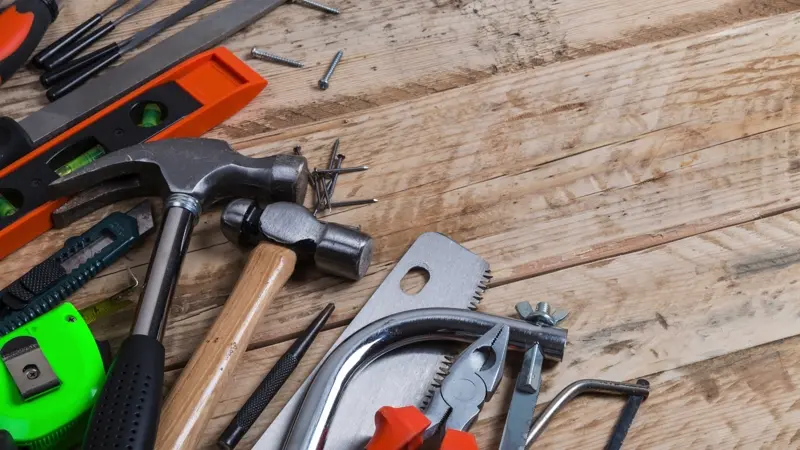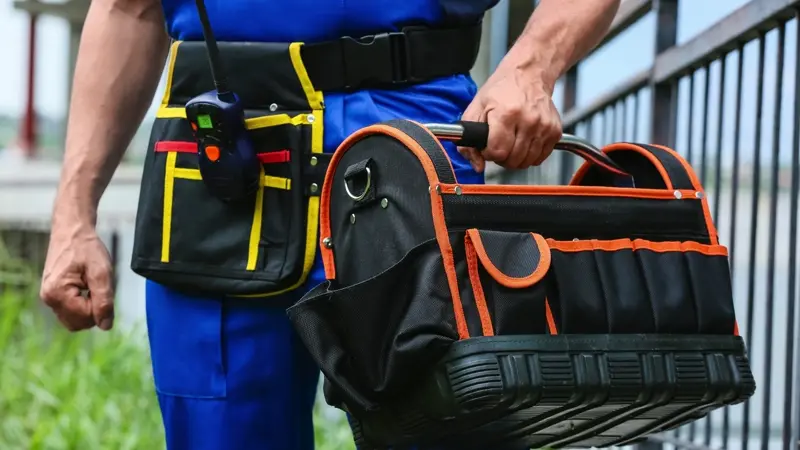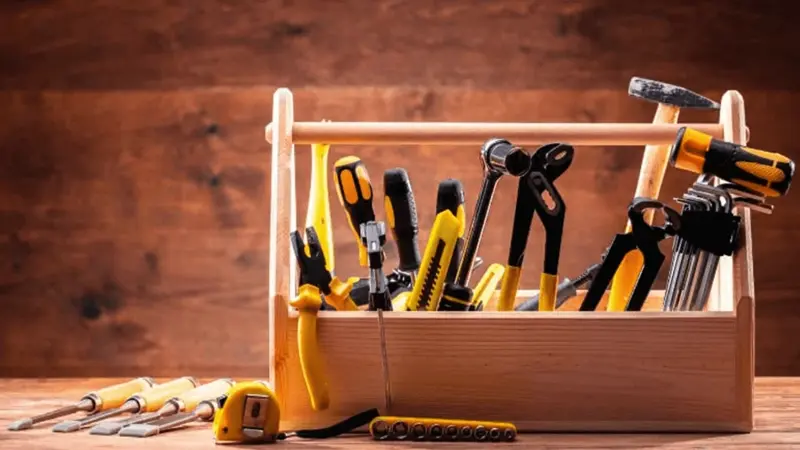A well-equipped home workshop can be a game-changer, enabling you to handle various tasks and projects effortlessly. Such a comprehensive workspace empowers homeowners to promptly address issues and perform minor repairs. Moreover, having all the crucial tools readily available allows you to work more intelligently and efficiently, ultimately enhancing your overall performance.
Table of Contents
Essential Tools for Every Home Workshop
Some people engage in DIY because they enjoy working with their hands, or they simply want to improve their skills for household repairs. Others find that DIY saves money by eliminating expensive professional service calls at home.
Whether you’re an accomplished DIY expert or just beginning to explore basic repairs, essential home workshop tools can greatly enhance your experience. Uncover the vital tools required for an optimally furnished and professional home workshop.
1. Hammer
A hammer is an absolute must-have in every home workshop. It’s incredibly versatile and helps you out with tasks like nailing, taking out nails easily, and even accomplishing various general jobs. Getting yourself a top-quality claw hammer means you’re well-prepared for all sorts of projects. The best thing about a claw hammer is its two-in-one functionality – it’s perfect for both nailing and prying without needing separate tools. Investing in a reliable and durable claw hammer also guarantees that even challenging tasks can be tackled with accuracy and ease.
2. Screwdrivers
Screwdrivers are another essential tool that everyone should have at home. They’re needed for tons of repairs and various tasks. Mainly, there are two types of screwdrivers: flat-head (also known as straight or slotted) and Phillips (with a cross-shaped design). It’s important to get various sizes in both flat-head and Phillips to make sure you’re set for different tasks. Screwdrivers are perfect for putting together furniture, tightening up screws, or even opening up electronic devices for repairs.
3. Adjustable Wrench
An adjustable wrench is often seen as a vital part of every toolbox. It’s a versatile tool that’s great for dealing with nuts and bolts of different sizes and shapes. Thanks to its unique design, you can quickly adjust it and avoid buying lots of different-sized fixed wrenches. A good quality adjustable wrench will last you a long time without damaging the hardware when applying torque.
4. Pliers
Pliers are super handy tools found in almost every workshop or household. They let you grip objects of different thicknesses easily and accurately. There are three key types of pliers: needle-nose pliers – ideal for precise tasks like bending wires or dealing with small objects; regular slip-joint pliers – versatile in handling different widths and providing strong support; locking pliers (also called Vise-Grips) – great for securing items in place without needing continuous hand pressure.
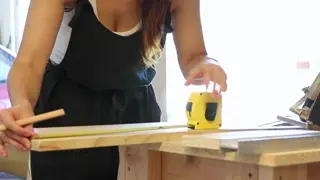
5. Utility Knife
A sharp utility knife is invaluable in a variety of situations. It’s versatile enough to cut through materials like cables, cardboard boxes, and even carpets. Its sharp blade ensures clean and accurate cuts without fraying or splintering. Plus, the compact design gives you a comfortable grip for precise control during cutting.
6. Tape Measure
A tape measure is critical when it comes to any home DIY or repair project. A high-quality retractable tape measure guarantees precise measurements and is easily accessible when needed. Its sturdy design and compact size allow for convenient storage in your toolbox, or even on your belt. And with a reliable locking mechanism, this helpful tool makes measuring distances a breeze while keeping the tape secure during use.
7. Level
When you’re working on home improvement projects like putting up shelves, hanging pictures, or installing cabinets, using a level is super important. It helps make sure your end result looks great and is sturdy. A level is a must-have tool for making sure things are lined up just right, so you get that balance and symmetry in your space. By adding this handy tool to your collection, you’ll see a big difference in the overall appearance and function of your projects – no more crooked angles or wobbly surfaces.
8. Power Drill
Every DIY enthusiast or professional craftsperson needs a top-notch power drill with adjustable speed in their toolkit. This awesome tool helps you quickly and easily create holes in all sorts of materials – think wood, metal, and plastic. Being able to change the speed means you can tailor the drilling process for each project’s unique needs. From putting together furniture to mounting shelves or diving into a major home renovation, a high-quality power drill gives you the precision and control for clean, accurate results every time. Plus, having a reliable power drill makes your work quicker and less tiring, so your projects are more fun and efficient.
9. Saws
A well-stocked workshop isn’t complete without a trusty handsaw for cutting through materials like wood and PVC pipes with ease. A handsaw’s solid construction and sharp teeth give you precise cuts that make it perfect for lots of construction and repair projects. It’s also a good idea to have a hacksaw on hand – this expands what you can do since its thin yet strong metal blade is designed to slice through tougher materials like metal pipes. The fine teeth on a hacksaw blade leave clean, smooth edges with little effort, making tough jobs so much easier.
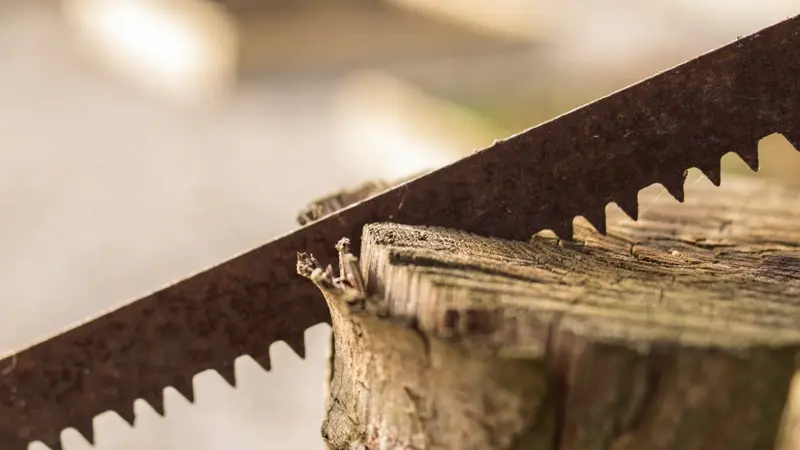
10. Toolbox
Keeping organized is key for an efficient home workshop, and one of the best ways to do that is by picking out the right toolbox. A strong, spacious toolbox not only keeps your tools organized and safe but also makes them easy to find when you need them. This means a tidier workspace, less time looking for the right tool, and better productivity overall. When everything’s in its place, your work experience is smoother, and you can really enjoy getting things done.
It’s Just You, Your Tools, and The Knowledge To Complete The Task
DIY can be a fun way to relax and enjoy yourself, however it’s important to take some precautions so that you don’t end up hurting yourself or damaging your belongings. It is especially important to make sure that you are using the right tools for the job, which means investing in equipment that is appropriate for your project and safe enough to use. You also need to be mindful of the materials you are using and how they will affect the environment when being disposed of.
When doing DIY, it is essential to keep safety in mind. Before beginning any project, take a moment to check the tools you are using and make sure they are safe to use. If you have children at home, it’s important to keep them away from areas where they could get injured while they exercise their curiosity.
While most DIY projects are simple pieces of furniture like shelves or table tops, there are also a few other things that should not be done at home. These include building things like walls and fences as well as digging holes or trenching because these can cause serious damage if done incorrectly or without proper precautions.
DIY videos and articles online can be quite helpful. It’s common to see people tackling projects at home on their own. DIY, which stands for “do-it-yourself,” is a way to accomplish tasks without hiring professional help.
The Bottom Line
Maintaining a well-stocked and fully functional home workshop is important for handling various DIY tasks and projects efficiently. Not only does it save time and money, but it also contributes to keeping your home in excellent condition. It is crucial to prioritize safety and carefully select the appropriate tools and materials for each project. Online resources like videos and articles can be a valuable source of information when tackling DIY projects, but some tasks that pose heightened risks or require specialized knowledge should be left to professionals.
